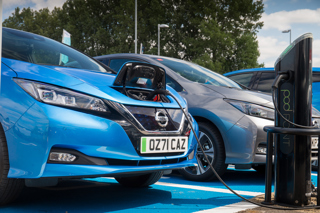A backlash to Tesla's starting 2023 with a significant price cut to its new electric cars, including marketing guru Mark Ritson writing in Marketing Week that the carmaker faces the seven perils of discounting rather than invest in some proper advertising, prompted MHA Macintyre Hudson's head of automotive advisory Alastair Cassels to take a closer look.
Tesla pricing has been, like many car OEMs in recent years, volatile. However, the recent furore needs to be seen in context. Tesla has been steadily taking prices up since it launched.
What a great position to be in. Put prices up and sell more – it’s called Pricing Power and is chased by many brands. Economists would refer to moving the elasticity curve.
Model 3 pricing went up 22% in March 22 and has now reduced 6% therefore a net increase over a year of 16%
Model Y pricing went up 25% last year and has now reduced by 15% resulting in a net increase of 10%.
Is this dynamic pricing in operation, is this what the new agency models will look like? A lot of OEMs hope so.
It's almost unheard of for car OEMs to reverse a price grab outside of a new model launch and then it normally a cynical marketing move on the entry level model which they don't actually intend to make.
Love him or loathe, Musk is a marketing genius because he's again got everyone talking about Tesla without shooting some formulaic TV campaign. Car marketing has been treading water for at least a decade to the point where there is almost no differentiation between brands and what they stand for.
Yes, there is something to be desired about the experience of some customers but if he continues to build share he can easily address any latent loyalty problems.
And therein lies the crux of the matter, Tesla does not fall into the paralysis that most other OEMs inhabit when it comes to commercial decision making.
To be successful in an OEM you have anticipate every possible outcome of any action you take particularly if it involves financial impact. Strategy is forensically modelled and has layers of approval, each one testing the proposal to the nth degree.
The result is slow, safe decision making that seldom favours customer outcomes over financial optimisation.
So maybe the recent pricing actions are consumer centric after all – Tesla put prices up as material costs and supply shortages in early 2022 placed cost pressures on them but unwound them (at elast in part) as soon as the global supply chain situation stabilised.
Or, Musk sensed the pack on his heels and that the Tesla clear run was ending so he defended share by a commercial action that he knows the competition cant follow profitably.
Either way it’s a win-win as it keeps the Tesla momentum going, brings more affordable EVs to the market, defends the share gains and saves investing in a bloated marketing budget for another few months.
Sometimes it pays not to over think, especially in the current car industry revolution. Oh and it's also better of the planet.
Alastair Cassels is head of automotive advisory at MHA Macintyre Hudson.




















Login to comment
Comments
No comments have been made yet.